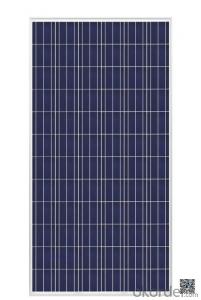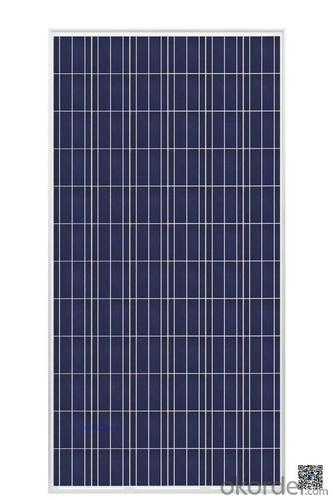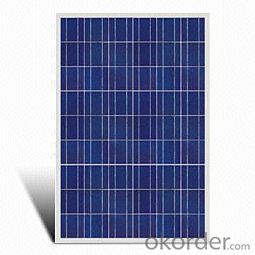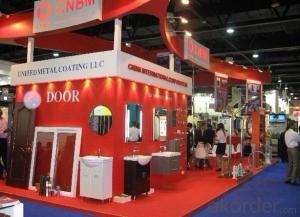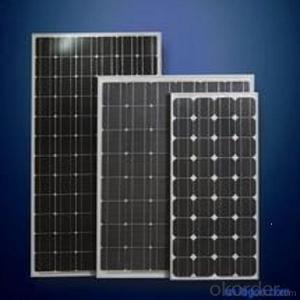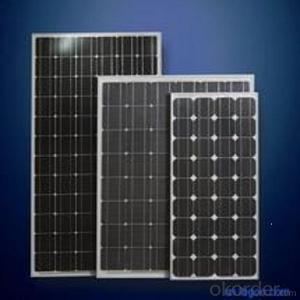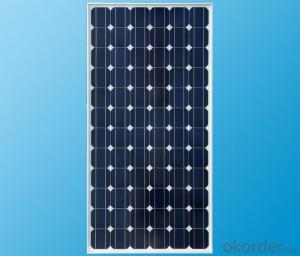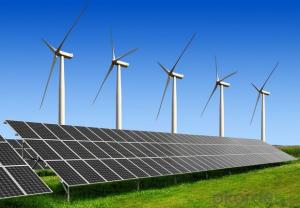American Solar Panels:Solar Panel for Best Price, Solar Module Panel with Full Certificate
- Loading Port:
- Shanghai
- Payment Terms:
- TT OR LC
- Min Order Qty:
- 2500 watt
- Supply Capability:
- 25000 watt/month
OKorder Service Pledge
OKorder Financial Service
You Might Also Like
Specification
We now provide
• Monocrystalline Solar Panel
• Polycrystalline Solar Panel
Features of our products:
• High conversion efficiency mono/poly-crystalline amorphous silicon solar cells
• Modules incorporate high performance bypass diodes to minimize the power drop caused by shading
• High transmittance, low-iron tempered glass
• High performance EVA encapsulant to prevent destroying and water.
• AI frame: without screw, corner connection. 8 holes on the frame can be installed easily
• Good performance of preventing from atrocious weather such as wind and hails
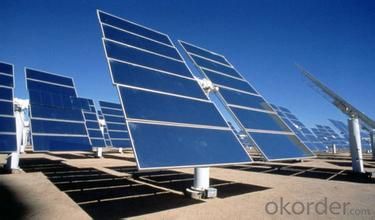
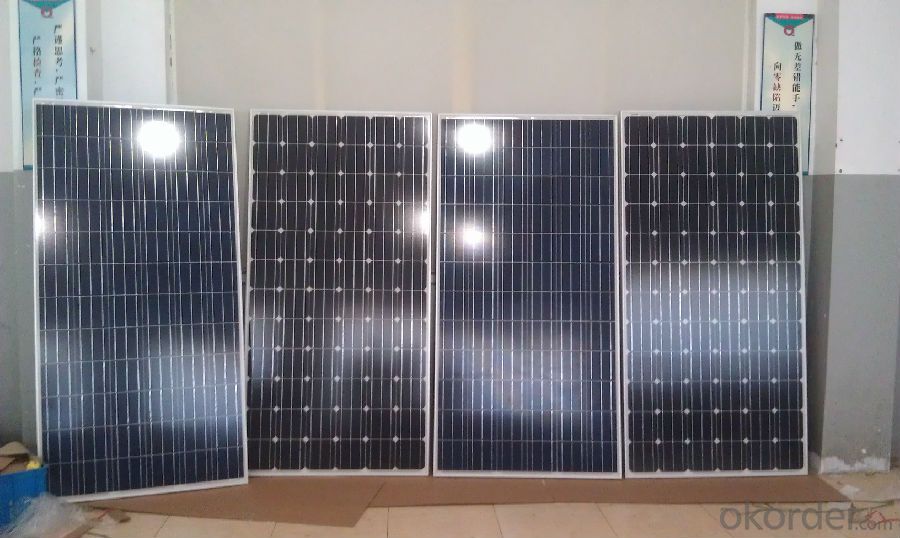
Polycrystalline Silicon Solar Modules 48Cell-195W Specification
ELECTRICAL PERFORMANCE | |||
Power output | P max | W | 195 |
Power output tolerances | ΔP max | W | 0/+5 |
Module effi ciency | η m | % | 14.7 |
Voltage at Pmax | V mpp | V | 23.7 |
Current at Pmax | I mpp | A | 8.03 |
Open-circuit voltage | V oc | V | 30.1 |
Short-circuit current | I sc | A | 8.65 |
Product Description:
This installation Manual contains essential information for the electrical and mechanical installation that your must know before installing CUSTOMER PV modules. This also contains safety information you need to be familiar with .All the information described in this manual are the intellectual property of CNBM and based on the technologies and experiences that have been acquired and accumulated in the long history of CUSTOMER. This document does not constitute a warranty, expressed or implied.
CUSTOMER does not assume responsibility and expressly disclaims liability for loss, damage, or expense arising out of in anyway connected with installation, operation, use or maintenance of the PV modules. No responsibility is assumed by CUSTOMER for any infringement of patents or other rights of third parties that may result from use of PV module.
CUSTOMER reserves the right to make changes to the product, specifications or installation manual without prior notice.
Solar panel working process
In addition to being the ultimate source of all life on earth, the sun is an infinitely renewable, completely pollution-free source of electricity. Instead of burning fossil fuels dug up from the ground in a big power plant – a very 19th century, industrial age approach, when you think about it – solar panels convert sunlight directly into electricity, with no harmful emissions.
The basic unit of a solar panel is a solar cell, which usually consists of one or two layers of silicon-based semiconductor wafers. When struck by the photons in sunlight, the solar cell generates an electrical charge due to the "photovoltaic effect" – which is a pretty good name, since it produces voltage from photons. The flow of these electrons moves in a steady electrical current from one side of the cell to the other.
Dozens of these PV cells are packaged together into solar modules, which in turn are packaged into solar panels that are mounted on a rooftop and arranged to maximize their hours of exposure to direct sunlight. Because the electricity generated by all those solar cells is direct current (DC), it is then sent to an inverter that transforms the power into the same alternating current (AC) used by the appliances in your home and the local utility electricity distribution grid. Increasingly, these inverters are getting "smart," providing data monitoring for solar installation performance and other grid integration services.
FAQ of Solar Module
1. Q: Do you have your own factory?
A: Yes, we have. Our factory located in Jiangyin city, jiangsu province.
2. Q: How can I visit your factory?
A: Before you take off from your country, please let us know. We will show you the way,or arrange time to pick you up if possible.
3. Q: Do you provide free sample?
A: Usually we do not offer free sample
4. Q: Could you print our company LOGO on the nameplate and package?
A: Yes, we can do that.
- Q: Where can I find good instructions to build a cheap solar panel on my own?
- To build an effective but cheap solar panel, you need some expert advice. I recommend you get your hands on the comprehensive e-book and video instructions by Michael Harvey. His guide is very easy to follow and it will help you make a complete solar power system for less than $200. He also teaches how to make windmills. I hope this helps!
- Q: Can solar panels be used to power air conditioning units?
- Yes, solar panels can be used to power air conditioning units. Solar panels generate electricity from sunlight, which can be used to power various appliances, including air conditioning units. However, the size and efficiency of the solar panel system needed will depend on factors such as the size of the air conditioning unit and the energy requirements of the building.
- Q: Why can't they put solar-panels on the blades and sides of the 300-500 foot tall turbines? Wouldn't this increase effeciency? Therefore, boosting pay-back time, profits, energy-output?
- Good to know someone is thinking and coming up with original ideas, so thanks for contributing... Put a large powerful solar collector on the end of the turbine too i.e. facing the sky! Far as I know, solar works on day-light (doesn't have to face the sun). So your idea is not to be put down. Metal blade turbines - are heavy - wooden windmills - heavy... so some added weight to the wind-turbine's paddles would be OK robably. Great if solar device not made of glass (so unbreakable). I think panels on the roof are old hat...
- Q: what is one benifit in a solar panel?
- what do you want to know ? there is so many benefit of the solar panel , such as no pollution , ETC
- Q: I want to get a solar panel to run a fan (or two) for swamp coolers.I'm not looking to power 20box fans, just maybe some of those auto fans.What the heck kind of panel do I need? What is a power inverter and what does it do?Will I lose all my power if I use a 00' extension cord?How do I choose what I'm going to need?
- Any fan you find in a store is going to expect AC, not DC, which is what solar panels produce. An inverter changes DC to AC. You'll probably want a deep cycle car battery to smooth out overages and underages. Any fan will tell you how many watts it uses. Panels should (i haven't looked) tell you how many watts they produce. Just off hand, I'd guess you're looking at a 2'x4' panel. Considering how much you'll be paying for the rest of the stuff, a good 00' cord is appropriate,. Last, it's worth the experience, but you'll never recover the cost of everything that you'll have to buy. Have fun.
- Q: Can solar panels be used to power a film set?
- Yes, solar panels can be used to power a film set. Solar panels convert sunlight into electricity, which can be used to power various equipment and lighting on a film set. This renewable energy source offers a sustainable and environmentally friendly alternative to traditional power sources.
- Q: I have a college project due within a week, and it involves a 00 Watt solar panel and a 2V 7.5Ah Battery. I got the project finished up and producing free energy for my house in September, however recently the battery I bought, that was specifically made to hold Solar Power, lost its charge (unsure how or why) and it is pretty much useless. Can I just go to a store and buy any 2V car battery to use?
- Those answers are partly correct. You cannot recharge two 2 volt batteries in series with a photovoltaic panel with an open circuit voltage of 8 volts. You possibly over charged your 7.5 AH battery with a 00 watt photovoltaic panel, which can supply 8 amps to the battery with unusually bright sun light = fully charged in one hour. More likely you did not charge the battery for a month or more which killed it. Also discharging below 2.6 volts shortens the life of the battery, or short circuiting the terminals even briefly. Yes a deep cycle sealed lead acid battery rated 2 AH is likely the best unless you buy a 00 amp hour marine battery which weighs about 80 pounds and will take at least two days of bright Sun to fully charge.
- Q: what kind of rays are used in solar panels?
- Electromagnetic...meaning light rays, primarily in the visible spectrum. Ultraviolet and infrared light rays actually degrade most types of solar panels, limiting their useful lifetime. That said, your question is not stated well...so I'm not sure if that's the information you were looking for. Rays are not used in solar panels...rather solar panels are used to collect sunlight and convert it to energy--either directly into heat in the case of passive solar, or into electricity by the use of photovoltaic cells.
- Q: Can solar panels be used for powering a water treatment plant?
- Yes, solar panels can be used to power a water treatment plant. Solar energy can be harnessed and converted into electricity to provide a sustainable and renewable power source for operating the various equipment and processes involved in water treatment. By utilizing solar panels, water treatment plants can reduce their dependence on traditional energy sources and contribute to a more environmentally friendly and cost-effective operation.
- Q: I'm thinking of getting a solar panel for my house to help cut back on power use (I live in New Mexico). What sort of appliances can I run on a watt solar panel? Is it worth it to get a single watt panel or is it more efficient to get a multi-watt panel?
- You can run a lot of things. If you set the system to charge batteries when you are not using anything, they will charge effectively. You can use the system for lighting, LED lighting direct from the battery power is most effient since LEDs are low voltage devices with a very long life span. I replaced a 2 tube flourescent trough with four 5Watt PowerLEDs for example, While I have it on 20VAC at the moment, I can move it to 2 VDC power with ease, and had set it up to run initially on 2 volt sources. There are also many 2 volt appliances as well. You can even convert some of those all in one stereo systems to operate on 2 volts by eliminating the power supply. You will actually use less power by doing so. You will not be able to blow the shingles off the roof unless you add a Class D amplifier to the output, but for most listening, the output is adequate. Some small TV's these days can be run from 2 volt sources, if not directly, then with a buckboost inverter for a laptop. The small TVs only draw about 30 to 45 Watts. Skip the idea of using an inverter, they are not efficient at small loads, and represent additional load on the system. So with a little bit of planning, you can run a lot from that 60 Watt system. You can at least take some bite out of the electric bill for mundane lighting. You can also use them to keep power up on a battery system for lighting in a remote barn. The uses are only limited by your imagination and creativity.
Send your message to us
American Solar Panels:Solar Panel for Best Price, Solar Module Panel with Full Certificate
- Loading Port:
- Shanghai
- Payment Terms:
- TT OR LC
- Min Order Qty:
- 2500 watt
- Supply Capability:
- 25000 watt/month
OKorder Service Pledge
OKorder Financial Service
Similar products
Hot products
Hot Searches
Related keywords
